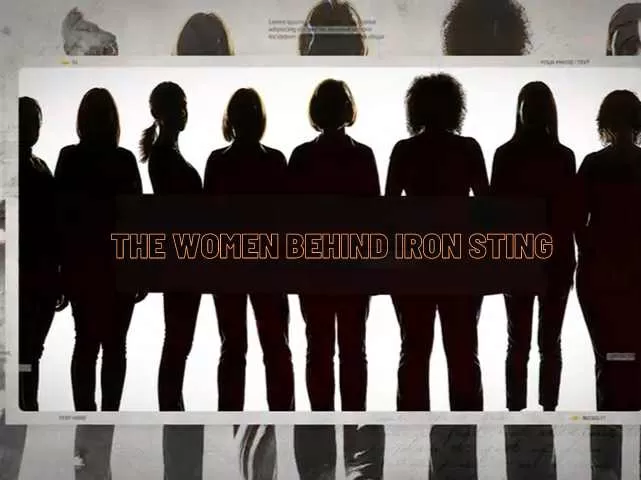
Lethal Women
In honor of International Women's Day, the women behind Iron Sting open up about their careers and the obstacles they've faced over the years. This includes one unforgettable moment when one of them was ordered by a superior to make dinner.
In honor of International Women's Day, the women behind Iron Sting open up about their careers and the obstacles they've faced over the years. This includes one unforgettable moment when one of them was ordered by a superior to make dinner.
Twenty years ago, the idea of a group of talented women leading the development of one of Elbit Systems' advanced products might have seemed far-fetched. As International Women's Day nears, we explore the journey of the women behind the Iron Sting mortar. We'll hear about the challenges they encountered, their experiences of highs and lows, and, most importantly, their success in developing this groundbreaking technology.
In an exclusive interview, these remarkable women share their journey, shedding light on the obstacles they've overcome and the pride they feel in their accomplishments.
"Go Make Borscht!"
These women now hold key leadership positions not only within Elbit Systems but across the security sector. Their journey to these roles, however, was not straightforward. As young women entering a field largely dominated by men, they faced a multitude of challenges.
Consider Sarah (a pseudonym), a seasoned physician and engineer in Elbit Systems' warheads sector. Now in her 70s, Sarah began her journey in the security industry nearly 50 years ago. Back then, she encountered numerous instances of mansplaining and faced various forms of chauvinistic behavior from male colleagues and superiors.
"Long ago, I was slated to present to a well-respected army general about the warheads department," she recalls. "However, the evening before, my boss delivered shocking news: 'The general doesn’t want to see you. He thinks you’d be better off making borscht (A traditional Russian dish) for your husband instead of discussing warheads.' I was devastated and spent a sleepless night. Determined, I stormed into his office the next day, bypassing anyone who tried to stop me. With my strong Russian accent, I spoke my mind without holding back. Surprisingly, he understood. From that point on, our relationship changed for the better; we even became friends, and he would consult with me on various matters over the years."
Alongside Sarah's story, we hear from Dana (a pseudonym), a senior manager on the Iron Sting project. Dana reflects on the challenges she encountered early in her career, noting that even in 2024, the presence of senior women in the defense industry is not taken for granted. This reality, she points out, is something she confronts in her daily work.
"I often find myself as the only woman in the room, and that doesn’t bother me," says Dana. "The dynamics have shifted from 20-30 years ago when women felt the need to prove their worth. Nowadays, the younger generation of engineers doesn’t bat an eye; to them, collaborating with women is standard practice".
"When I first joined the company, there were a few old-timers who doubted the place of female engineers,” she continues. “But that's in the past. We've moved to a point where our integration is seamless, without the need for justifications. What I find most rewarding is how natural it has become for women to lead and innovate in roles like developing the Iron Sting mortar. It’s an exciting role, and I absolutely love what I do."
"I Love the Lethality"
What exactly is the Iron Sting? The women spearheading the project put it in simple terms. “It’s a missile designed for precision, capable of striking distant targets with pinpoint accuracy,” Sarah explains.
Rachel, the VP of the mortar shells division, adds enthusiastically, “Rather than dispersing multiple missiles indiscriminately, a single Iron Sting missile can accurately hit the intended target. It’s changing warfare by offering swift and precise responses."
The Iron Sting sounds both lethal and precise. What aspect of your work excites you the most?
Sarah: "For me, it’s the lethality. The ability to ensure bombs strike with precision and impact exactly where they’re intended is what I find most rewarding."
Ruth: "I've been drawn to engineering since elementary school, captivated by anything that could fly. My dream was always to contribute to the defense industry or the military."
Given your experiences, do you feel there is still a need to celebrate International Women's Day?
Rachel: "In my division, there's an automatic assumption that a man will be in charge. So, despite wishing it were otherwise, the expectation persists. We are part of a defense organization dominated by men, often with distinguished military backgrounds, which means I'm constantly expected to prove myself more than my male counterparts. It requires me to work harder."
Sarah: "Personally, I don't see a need for Women's Day anymore. Success in any field demands a deep passion for the work. That's the advice I give to young women who seek my guidance."

